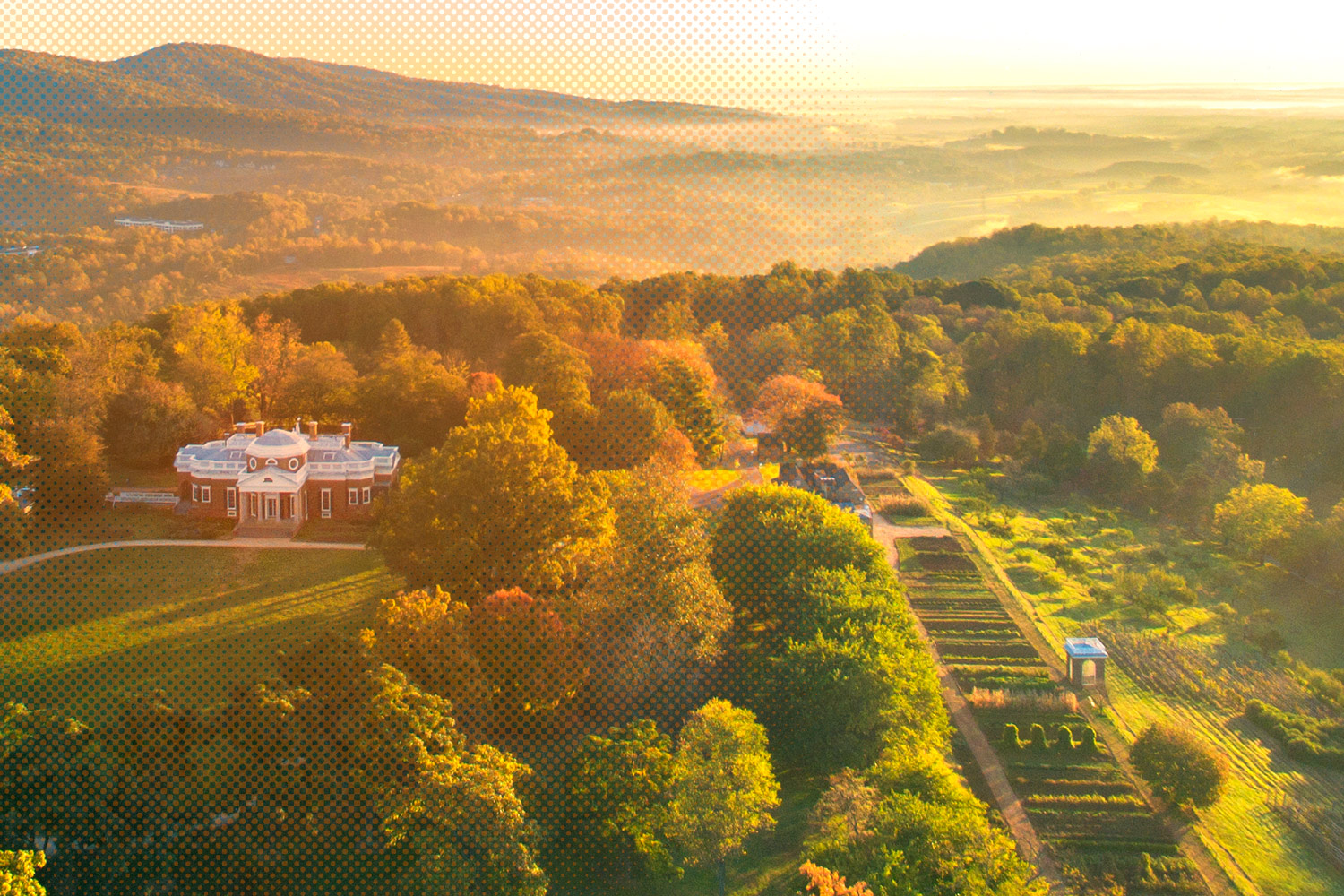A University of Virginia forum expected to draw some of the world’s leading artists, authors and filmmakers to Charlottesville in September will be capped by a public summit, hosted by the Thomas Jefferson Foundation at Monticello, examining how the history of slavery shapes today’s conversations on race, freedom and equality.
“Memory, Mourning, Mobilization: Legacies of Slavery and Freedom in America” will serve as the capstone of “Human/Ties,” a four-day event organized by UVA and supported by the Andrew W. Mellon Foundation to celebrate the 50th anniversary of the National Endowment for the Humanities.
The festival, which begins Sept. 14, will feature a series of public lectures and other events exploring the importance of the humanities in the modern world, featuring a roster of presenters scheduled to include internationally acclaimed novelist Salman Rushdie; David Simon, writer and creator of the critically lauded television series, “The Wire”; and celebrated chef, author and National Humanities Medalist Alice Waters.
The Monticello summit, scheduled for Sept. 17, will feature noted UVA scholars Deborah McDowell and Peter Onuf, as well as national luminaries including Marian Wright Edelman, Henry Louis Gates Jr., Annette Gordon-Reed, Jon Meacham and UVA alumnus Jamelle Bouie.
The event will serve as the ideal capstone for Human/Ties, according to Chad Wellmon, the University chair of the forum’s planning committee.
“We’re interested in the role that public monuments and sites such as Monticello play in the history of our nation and its future,” said Wellmon, associate professor of German studies in UVA’s College and Graduate School of Arts & Sciences. “How might one of the best-studied and best-preserved plantations in America help us to not only to mourn and memorialize the past, but also advance our conversations about the ongoing struggle for racial justice?”
The Monticello summit will bring together historians, artists, activists and cultural leaders, as well as descendants of those once enslaved at Monticello, to consider how the history of slavery in the United States shapes contemporary issues of race, citizenship, freedom and equality.
A United Nations World Heritage site, Monticello was once home to hundreds of enslaved people. Over his lifetime, Thomas Jefferson, author of the Declaration of Independence and UVA’s founder, owned more than 600 slaves on several plantations, including Monticello.
Leslie Greene Bowman, president and CEO of the Thomas Jefferson Foundation at Monticello, said the summit will inspire frank, far-ranging dialogue on the history of slavery and its meaning in today’s conversations on race and equality.
“We are honored to host this conversation on the grounds of Thomas Jefferson’s plantation, a deeply meaningful site that reflects the duality of the American story,” Bowman said. “Monticello is an essential place to reflect on the legacy of slavery in America. We honor the hundreds of enslaved individuals who made Monticello possible, and invite the community to join us on Sept. 17, when we will trace the arc of American history, and the challenges of race and equality, from their lives to the present day.”
In addition to race, the Human/Ties forum will explore four other topics: war, the environment, globalization and democratic citizenship. Sponsored by a $750,000 grant to the University from the Andrew W. Mellon Foundation, it also has received financial commitments totaling $250,000 from UVA and the NEH.
The entire series of events will be free and open to the public. A detailed schedule and a list of speakers will be available later this summer at humanities2016.com. Sign up for event updates here and follow Human/Ties on Twitter @human_ties.
For information on the capstone summit at Monticello, visit monticello.org/NEH.
Media Contact
Article Information
July 13, 2016
/content/monticello-summit-race-legacy-slavery-conclude-uva-led-celebration-neh

